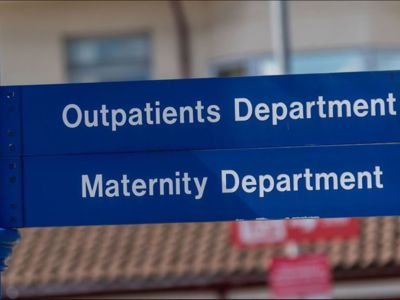
NHS England pledges to eliminate cervical cancer by 2040
Camilla Browne considers the government’s promise to eradicate cervical cancer by 2040.
Posted on 05 December 2023
NHS England has announced a pledge to eliminate cervical cancer by 2040. But, why has there been an increase of younger women being diagnosed with cervical cancer?
Each year, around 2,700 women are diagnosed with cervical cancer, and the disease claims around 850 lives every year in the UK. However, NHS England has pledged to reduce this figure by boosting uptake of the human papillomavirus (HPV) vaccine and cervical screening.
Cervical screening is vital in preventing cervical cancers. The screening tests for HPV. If a women is diagnosed with a high-risk HPV infection of cervical cells and this lasts many years, the cells can become abnormal. Most cases of cervical cancer are linked to high-risk HPV. However, some very rare types of cervical cancer are not caused by HPV and the current cervical cancer screening test is not suitable for these types of cervical cancer. These rare types of cervical cancers are usually identified when women report symptoms of pain and abnormal bleeding.
In England, women between the ages of 25 to 64 are invited to have regular cervical smear tests which, if reported correctly, help to identify any abnormal cells and allow women to have early investigations and intervention. However, in order to meet this pledge, NHS England must ensure that these cervical cancer screenings are safe, of high quality, fit for purpose and are able to identify all cervical cancers.
Firstly and most importantly cervical screening must be reported correctly. We, at Leigh Day, are conscious that there have been accounts of incorrect reporting of cervical smear tests. This is endangering women’s lives, as the windows of early intervention and diagnosis are being missed, resulting in devastating outcomes.
For instance, in 2018, thousands of cervical cancer screening results went under review after failings at a laboratory resulted in some women being incorrectly given the all-clear. Sadly, this incident is not a one off.
With Suzanne White, I currently represent a woman who was diagnosed with cervical cancer. Our client engaged with her cervical screening programme but unfortunately, two London-based trusts’ laboratories failed to identify abnormalities on two separate cervical smear tests. It wasn’t until she had already been diagnosed with invasive cervical cancer that her previous smear tests were independently reviewed under the cervical cancer audit. This audit identified the missed opportunities and incorrect reporting.
We welcome the news of NHS England’s pledge to eradicate cervical cancer by 2040, but in the meantime, we need to be reassured that women are receiving high-standard care and that cervical smear tests are being reported correctly. Detecting and diagnosing cervical cancer early is of paramount importance to avoid devastating outcomes.
If you have experienced any of the above and require advice about a compensation claim for medical negligence relating to incorrectly reported cervical smear slides or delay in diagnosing cervical cancer, please feel free call us confidentially today on 020 7650 1200 or contact us on swhite@leighday.co.uk

Why aren’t we seeing a reduction in the number of tears, grazes or episiotomies in mothers who have a vaginal birth?
Suzanne White and Camilla Browne discuss typical cases involving perineal tears that they encounter in their work as a partner and a solicitor specialising in clinical negligence.



